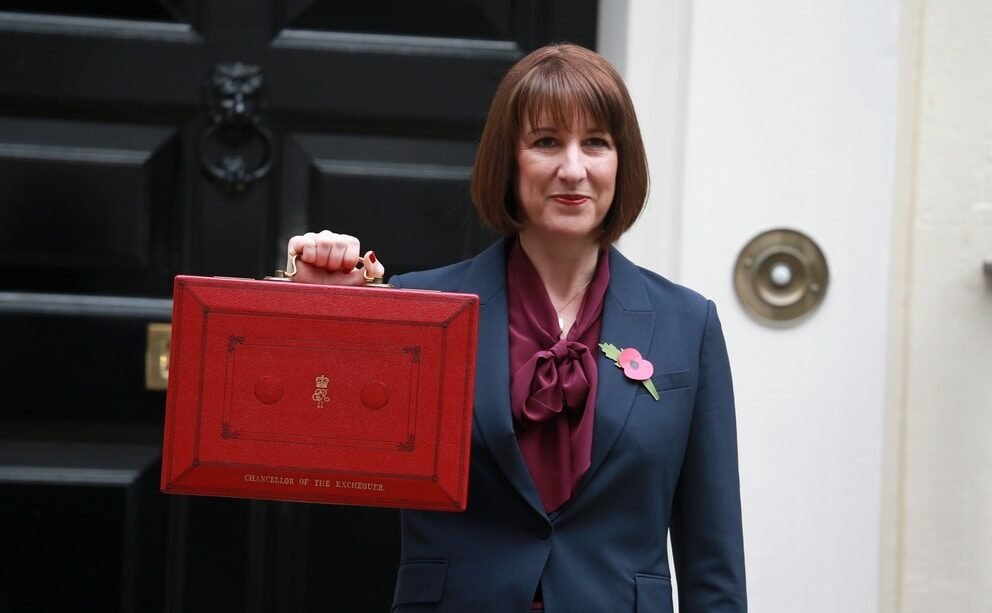With just one day to go before Chancellor Rachel Reeves delivers her Autumn Budget following months of speculation, we asked mortgage brokers what they want to hear at the despatch box tomorrow.
Among the varied answers were the common themes of stability, reassurance, clarity, balance and a plea for thoughtful, practical measures.
Here’s what you had to say…
The BTL market
Simmy Kaur, director of buy to let (BTL) mortgages at Lendlord Finance, wants tomorrow’s Budget to support landlords and limited company investors rather than penalise them.
She said: “Landlords operating through limited companies need reassurance that Corporation Tax rates will not rise further. A significant number of higher-rate taxpayers are considering transferring properties into company structures to make their portfolios more tax-efficient, but the costs involved in doing so are already high. Stability in this area would encourage continued investment and prevent landlords from postponing or abandoning plans to restructure.”

The future is here: API-powered full mortgage applications are live with Halifax Intermediaries
Sponsored by Halifax Intermediaries
Kaur also wants to see BTL surcharges simplified to remove some of the complexity and unpredictability that currently deters smaller investors.
She added: “Any targeted reliefs – for example, incentives for energy-efficient properties or for investment in high-demand rental areas – would also be a positive step.”
Income tax, VAT and National Insurance
Rupi Hunjan, managing director of Censeo Financial, wants stamp duty to be abolished completely and a review of National Insurance, again, to offer greater support to SME businesses. He’s also advocating for a 3.2% income tax for everyone, which he says is “fair”, and reduced VAT on construction materials.
Daniel Bailey, broker and owner of Middleton Finance, is calling for an increase in the income tax threshold to give households more disposable income, especially first-time buyers, to make getting a mortgage more affordable.
Stamp duty
Mobeen Akram, head of partnerships and new homes at OneDome, said: “There’s been prolonged speculation about potential changes to stamp duty, including shifting the tax from buyer to seller. The market needs clarity.
“Shifting stamp duty from buyers to sellers would lower upfront costs, making it easier for first-time buyers and movers to get onto or move up the ladder, potentially boosting transactions and improving mobility at a time when affordability is stretched.”
The risk, adds Akram, is how sellers might respond.
“They could increase asking prices to cover the tax, which could dilute some of the intended benefits.
“I would like to see Rachel Reeves support the market by reducing stamp duty rates for first-time buyers and all residential purchases below £500,000, as lowering a purchase tax like this would ease upfront costs and stimulate much-needed demand,” Akram added.
Akram is also calling for another 12-month stamp duty holiday, similar to the boost in activity seen in 2020, which she says could provide immediate momentum.
Meanwhile, Nick Mendes, mortgage technical manager at John Charcol, wants to see the stamp duty burden eased for downsizers or second-steppers.
He said: “This would unblock parts of the market where stock is badly needed. Well-targeted changes can improve mobility without artificially boosting demand. At this stage, the market doesn’t need stimulus, it needs friction removed.”
David Baker, managing director and partner at Brooks Mortgages, added: “We need some clarity from the government around long-term property taxation. I would love an incentive from the government such as the previous government’s stamp duty holiday to really give this market the long-awaited shot in the arm it needs. We need to remember that buying a property doesn’t just get people moving – it gets so many other related professionals working and creating more jobs and opportunities. Ideally, the scrapping of stamp duty altogether would be perfect, because it is a big barrier for entry for most people.”
Other broker suggestions include targeted relief for families who are upsizing and a smoother, more tapered structure that avoids sudden jumps in cost as property values increase.
Measured mansion tax approach
David Hollingworth, associate director at L&C Mortgages, wants any attempts to alter the tax on property to be approached in a balanced way.
“Talk of higher costs and levies on high-value property may seemingly affect a relatively small number of homeowners. But, depending on how it’s implemented, it could distort the market at the cut-off values. If done in a more measured way, it may have less of a knock-on impact if it can avoid being so onerous as to scare off buyers altogether,” he said.
A steady fiscal message
Mendes is urging the Chancellor not to upset the financial markets with any drastic policies.
He said: “Mortgage pricing is finely balanced right now, and lenders are cutting rates because funding markets have been calm. Any policy surprise that unsettles gilts or adds volatility would feed straight through into swap rates and ultimately into mortgage pricing. A steady fiscal message will do more for borrowers than any headline intervention.”
LISA reform
Mendes wants to see reforms made to the Lifetime ISA (LISA) property price cap.
He said: “The £450,000 property price cap has been frozen since 2017 despite significant house price inflation. First-time buyers in large parts of the UK are being penalised not because they are chasing luxury homes, but because the cap no longer reflects the real market.”
He also says the withdrawal charge is “particularly hard to justify”.
Savers not only lose the government bonus but have to pay an effective 6.25% penalty on their own savings simply for buying a home above an outdated threshold, which is seen as counterproductive.
“Raising the cap into the £500,000s or removing the penalty where the purchase exceeds the limit would be a fair and overdue correction that helps buyers without inflating prices,” he added.
Practical help for first-time buyers
Samantha Bickford, mortgage adviser at Clarity Wealth Management, says first-time buyers are the group she worries about the most.
“Many of them are doing everything right; working long hours, paying high rent, saving what they can, yet the goalpost keeps moving.
“High rents make it almost impossible to build a deposit, and the cost-of-living crisis has eaten into whatever savings they have left,” she said.
She wants to see a “modern and realistic version” of Help to Buy or a similar shared equity scheme that supports buyers with lower deposits without pushing them into unaffordable lending
She is also calling for higher stamp duty thresholds, specifically for first-time buyers, and support for safe, higher-loan-to-value (LTV) lending backed by government guarantees.
Downsizing support
Bickford added: “This is an area that rarely gets the attention it deserves, but it is hugely important.
“Many older clients tell me they would happily move to something smaller, more manageable or closer to family, but the costs involved make the decision feel like a burden rather than a positive step.
“If we genuinely want to free up larger homes for growing families, helping downsizers is essential.”
Bickford wants the Chancellor to give stamp duty relief to older downsizers. She wants to see more high-quality, accessible, age-friendly housing in the areas people actually want to live in and support that simplifies the moving process, which she says can feel overwhelming for older households.

